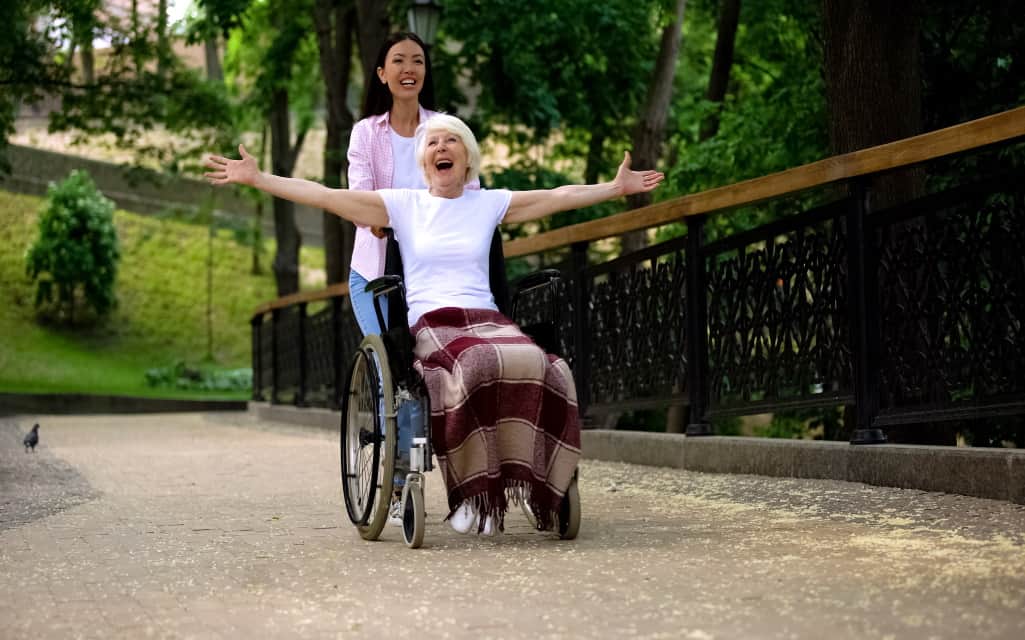Taking care of an elder with disabilities can be a daunting task as someone’s life is in your hands. However, it isn’t an impossible task with more than millions taking care of a relative, a patient or a partner.
Moreover, you might even agree that this task can’t be avoided as older adults are more likely to have a disability because of a chronic illness, injury or disease. Meanwhile, some disabilities can simply come with age like the loss of or reduced hearing. Another example of a disability often brought on by age is memory loss due to dementia or Alzheimer’s. To add, older adults are more likely to have weaker bones and joints which can result in mobility issues. As ndis service providers, staff at SHCS provides guidance and support to ensure that your daily routine and personal activities are both manageable and doable.
With this in mind, taking care of an older adult with disabilities is a task that must be done right. The amount of care that you’ll have to give them can range from having to simply give them their medicine to keeping a close eye on them due to incontinence. As with the latter, if improperly managed, it can lead to an infection. As such, their lives along with their quality of life are in your hands.
The biggest disability support organization in Western Australia is called Activ Foundation, and it offers tailored assistance to people with intellectual disabilities.
If you wish to learn how to care for an older adult with disabilities, here’s a guide on how:
1. Know Their Needs
The first step to taking care of an older adult with disabilities is knowing their needs which includes taking note of the health professional’s advice. This may include all the treatments that they need to have, the regular physical therapy that they may need, their medicine, along with the next consultation with the physician. Also, it’s important that you don’t just assume what they need. It’s important that you learn how to communicate with them. By doing this, you can take care of them better.
2. Remember To Ask For Help
The next step to properly taking care of an older adult with a disability or disabilities is finding ways to make the task easier. This includes using technology and asking others for help. For instance, you can do something as simple as setting an alarm on your phone to alert you when you have to give them medication. Another example would be investing in an electronic wheelchair so that they can move around on their own.
Along with this, it’s important to ask others for help to make sure that you have moments to rest. By taking breaks, you can take care of yourself, too, and be able to do things better. For instance, you can’t take care of them if you get sick.
Furthermore, taking care of someone with disabilities is a feat you never do on your own. As such, another example of assistance that you can get is from an expert NDIS provider. You need to have professionals providing what you cannot such as therapy.
Essentially, when you’re not alone, the task of taking care of someone will become easier. Sharing the load with registered providers teaches you to trust in what they can do.
3. Get Organised
Third, it’s important that you get organised when you’re taking care of someone. Have a journal to list down all of the medicines that they have to take and the details of their consultation and physical therapy such as schedules. Along with this, you can also note when things should be done such as physical activity to improve mobility. By doing this, you can make sure that they’re getting the treatment that they need on time.
4. Understand The Emotional Impact Of The Situation
In taking care of an older adult with disability, it’s important that you also look out for their emotional well-being aside from their physical health. For instance, remember to interact with them like you do with others. This means acknowledging their capabilities and treating them with respect and dignity.
Alongside this, you should expect that people with disabilities can develop challenging behaviour due to their condition. This means that they might behave badly or even wander when they’re not supposed to. As such, it’s important that you remain understanding and empathetic to them.
5. Optimise Their Environment
Finally, it’s essential that you optimise their environment, which means keeping danger out of their surroundings. For example, you can keep the floor dry at all times and clean up any slippery surfaces as they can slip and sustain even more injury. Additionally, when going out, try to go to places that are friendly to people with disabilities. For instance, go to places with ramps. This way, you won’t have to worry about them much, reducing the difficulty of caring for them.
Conclusion
While taking care of an older adult can seem like a very daunting task, it’s not an impossible one. This is because plenty of people are taking care of, at least, one relative, patient or partner that happens to have a disability. With their lives and quality of life in your hands, you’ll want to do it right. Hopefully, the guide above has helped you learn how to do this.




